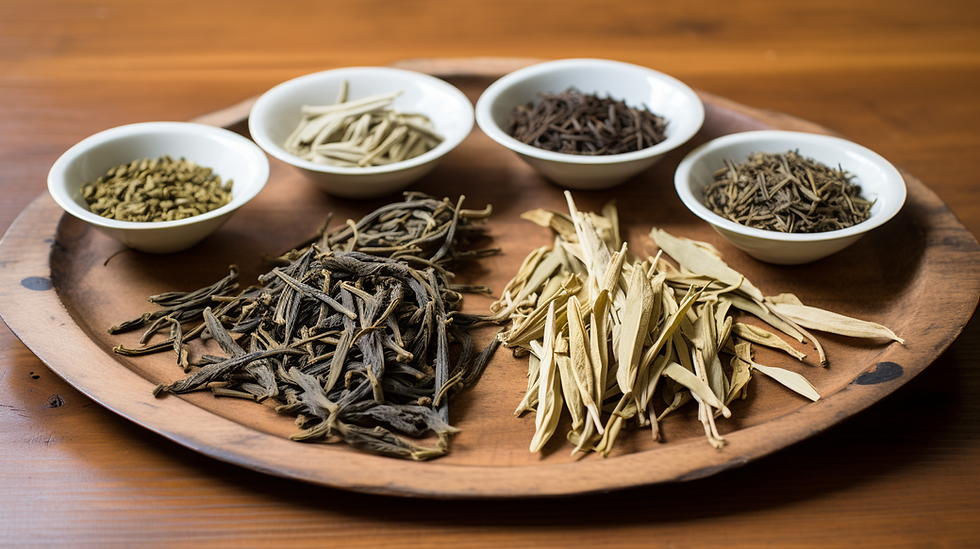
White tea, a hidden gem in the vast world of teas, has captivated the palates of many with its ethereal flavors and subtle aromas. Rooted deep in ancient traditions and cultivated with utmost care, white tea represents a delicate balance between nature and nurture. Its minimal processing preserves the essence of the tea leaf, giving it a unique character distinct from its green and black counterparts. In this comprehensive guide, we'll be unveiling the elegance of white tea, delving into its rich history, and exploring the myriad of varieties that grace our shelves today. For both the seasoned tea connoisseur and the curious novice, understanding the types of white tea is a journey of sensory delight and cultural exploration. Join us as we embark on this flavorful voyage, appreciating the art, science, and passion behind every cup of white tea.
The History and Origin of White Tea
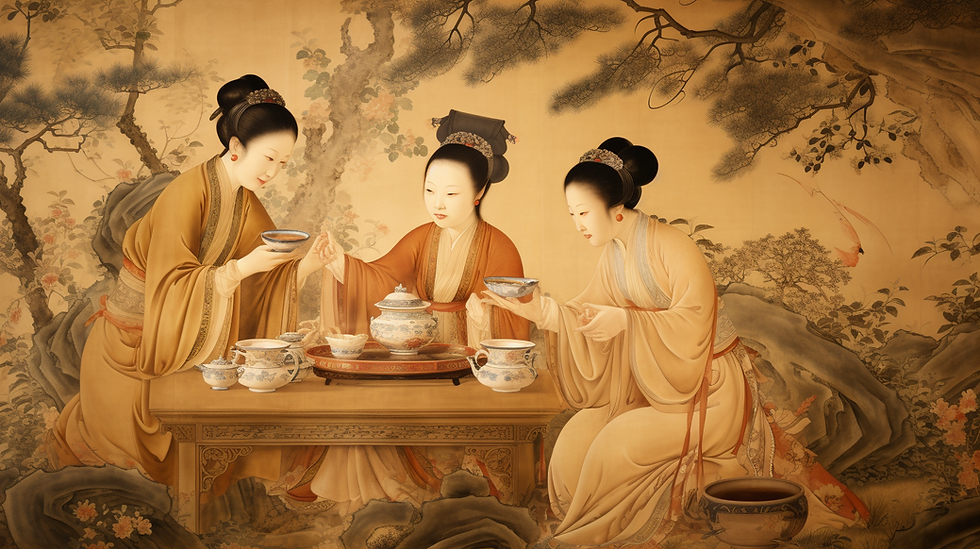
The mystique surrounding white tea begins with its deep-rooted history that hails from the majestic landscapes of ancient China. In those bygone eras, white tea was not just a beverage; it was an emblem of purity, luxury, and exclusivity. Reserved solely for the consumption of the royal elite, this tea became a testament to the drinker's elevated social standing.
The production of white tea was a painstaking process, where only the finest and youngest leaves were handpicked during the early spring mornings, ensuring minimal oxidation. This meticulous selection resulted in a tea that was rare, and its rarity further enhanced its value, making it highly sought after among the elite. As traders and travelers carried tales of this exquisite tea to distant lands, its reputation grew, solidifying its position as a symbol of status and luxury.
Over the centuries, as cultivation techniques evolved and expanded, the world got introduced to various types of white tea, each with its distinct flavor profile and characteristics. From the tender buds of Silver Needle to the fuller flavors of White Peony, the spectrum of white tea varieties offers a taste for every palate.
Today, as we sip on a cup of white tea, we are not just indulging in a beverage; we are partaking in a legacy. A legacy that speaks of ancient traditions, royal preferences, and a time when tea was more than just a drink. It was an experience, a status symbol, and above all, an art. By delving deep into its diverse varieties and unique flavors, we gain a deeper appreciation for why white tea continues to be revered as the epitome of sophistication in the tea world.
Types of White Tea
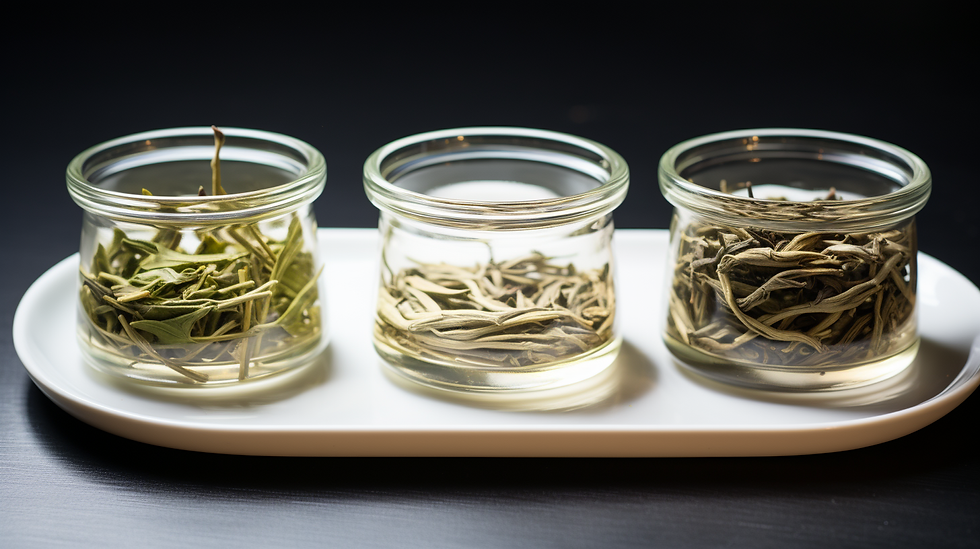
Various types of white tea cater to different palates. Here are the most notable ones:
Silver Needle (Bai Hao Yin Zhen):
Steeped in rich history and regarded as the crown jewel among white teas, Silver Needle, or Bai Hao Yin Zhen as it's traditionally known, stands out for its unparalleled purity and elegance. This premium tea is harvested primarily in the Fujian province of China, a region renowned for producing some of the world's finest teas.
What sets Silver Needle apart is its meticulous harvesting process. Only the tenderest, youngest buds are handpicked, typically during the early spring when the first flush of tea is at its prime. These buds, covered in fine silvery-white hairs, give the tea its characteristic name and appearance.
Upon brewing, Silver Needle reveals a delicate pale yellow liquor, offering a subtle, yet complex flavor profile. Its taste is refreshingly light with hints of sweet floral notes, underlying grassy undertones, and a lingering, mellow aftertaste. The absence of older leaves in its production ensures that its flavor remains untainted, capturing the essence of the bud in its purest form.
The high standards maintained during the cultivation of Silver Needle make it relatively scarce, further elevating its status as the best type of white tea. Its minimal processing, combined with its selective harvesting, ensures that every sip offers a serene and authentic tea experience, making it a favorite among tea enthusiasts and connoisseurs worldwide.
White Peony (Bai Mu Dan):
Originating from the famed tea gardens of China's Fujian province, White Peony, known traditionally as Bai Mu Dan, holds a special place in the heart of white tea aficionados. Distinctive in its composition, this tea is a harmonious blend of the young tea buds complemented by the adjacent two leaves.
The careful selection of both the buds and the leaves is what gives White Peony its signature appearance. When spread out before processing, the silvery buds contrast beautifully with the fresh green leaves, painting a picture reminiscent of peony flowers in bloom, hence its poetic name.
In terms of flavor, White Peony offers a depth and complexity that is both refreshing and invigorating. Its brew presents a pale golden hue with a delicate aroma that hints at floral undertones. When sipped, the tea unveils layers of flavors – from the initial sweet and mellow notes reminiscent of fresh apples or peaches to a slightly nutty finish, all underpinned by a gentle vegetal undertone. This fuller flavor profile is a direct result of incorporating the leaves with the buds, allowing the tea to capture a broader spectrum of the plant's natural essence.
Being less processed than Silver Needle, White Peony retains a higher concentration of antioxidants, making it not just a treat for the palate but also a boon for health. Its perfect balance of delicacy and richness has earned White Peony its reputation as a must-try for those venturing into the world of white teas or seasoned enthusiasts seeking a cup with both subtlety and depth.
Long Life Eyebrow (Shou Mei):
Nestled within the vast spectrum of white teas is the intriguing variety known as Long Life Eyebrow, or Shou Mei in its native tongue. Unlike its counterparts, which prioritize the younger parts of the tea plant, Shou Mei finds its identity in the mature leaves that grow further down the stem. These leaves, often larger and more robust, imbue this tea with its distinctive character.
Hailing primarily from the Guangdong and Fujian provinces of China, Shou Mei's production process is a testament to the art of patience. The leaves are allowed to mature on the plant, absorbing the rich nutrients of the soil and the nuances of their environment. Once harvested, they undergo a natural withering process, which further concentrates their flavors and results in a gentle oxidation.
The outcome of this careful cultivation and processing is a tea that stands out in both appearance and taste. The brewed Shou Mei presents a deeper, amber-hued liquor, considerably darker than most other white teas. Its flavor profile is a captivating dance of strength and subtlety. The initial sip reveals a bold, earthy taste, reminiscent of autumnal woods, which then gives way to sweeter, fruity undertones, often evoking hints of plum or dried apricot. This balance of flavors, combined with a slightly smoky finish, makes Shou Mei a unique and memorable tea experience.
Often considered a more mature or aged version of white tea, Shou Mei is also associated with various health benefits due to its rich antioxidant content. Its name, which translates to "Long Life Eyebrow," is a nod to both its longevity-promoting qualities and the eyebrow-like shape of its mature leaves. For those seeking a white tea with depth, character, and a story to tell, Long Life Eyebrow offers a journey that is both flavorful and steeped in tradition.
Does White Tea Have Caffeine?
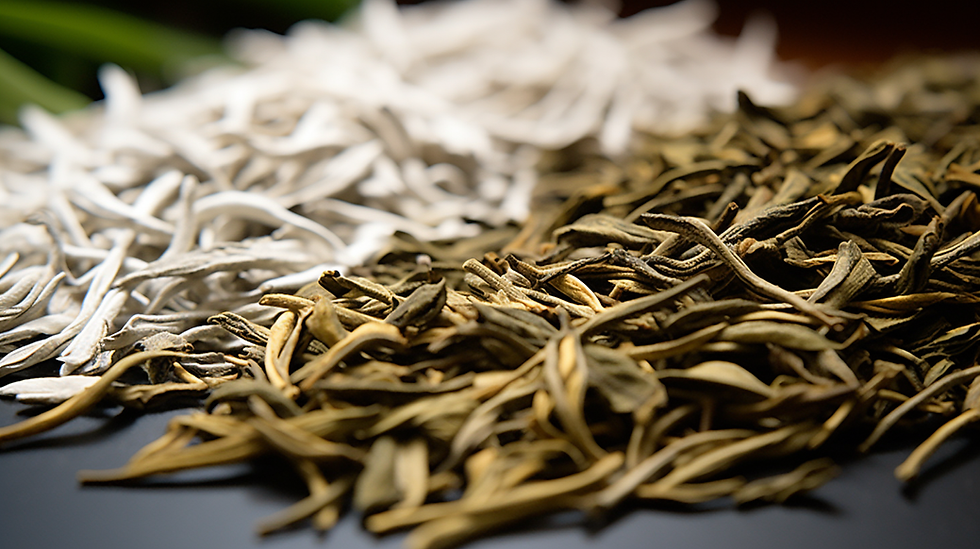
The world of tea is as diverse in its flavors as it is in its components, and caffeine is a key element that often comes into the spotlight. When diving into the subject of white tea, one query frequently surfaces: "Does white tea have caffeine?"
To address this, let's first understand the basics. All true teas, whether they be white, green, black, or oolong, originate from the same plant – Camellia sinensis. This means that inherently, all these teas contain caffeine. So, the straightforward answer to the question is a resounding yes, white tea does indeed have caffeine.
However, the nuance lies in the amount. White tea, due to its minimal processing and the fact that it's often made from younger leaves and buds, generally contains a lower caffeine content compared to its more processed counterparts like green or black teas. The exact amount can vary based on factors like the specific variety of white tea, its cultivation methods, and brewing techniques.
This characteristic of white tea offers a unique advantage. For individuals sensitive to caffeine or those attempting to moderate their intake, white tea emerges as an ideal beverage. It provides the warmth, comfort, and rich antioxidants of tea, all while ensuring a milder caffeine kick. This ensures that you can indulge in multiple cups throughout the day without the overstimulation that might come from stronger teas.
Furthermore, the caffeine in white tea is balanced with other natural compounds, leading to a gentle, sustained energy release rather than the sharp spikes and subsequent crashes often associated with other caffeinated beverages. This makes white tea not only a delightful drink but also a mindful choice for those seeking both flavor and well-being in their cup.
In conclusion, while white tea does contain caffeine, its comparatively lower content combined with its myriad health benefits makes it a favored choice for many, especially those aiming for a serene tea experience without the pronounced buzz.
Health Benefits of White Tea
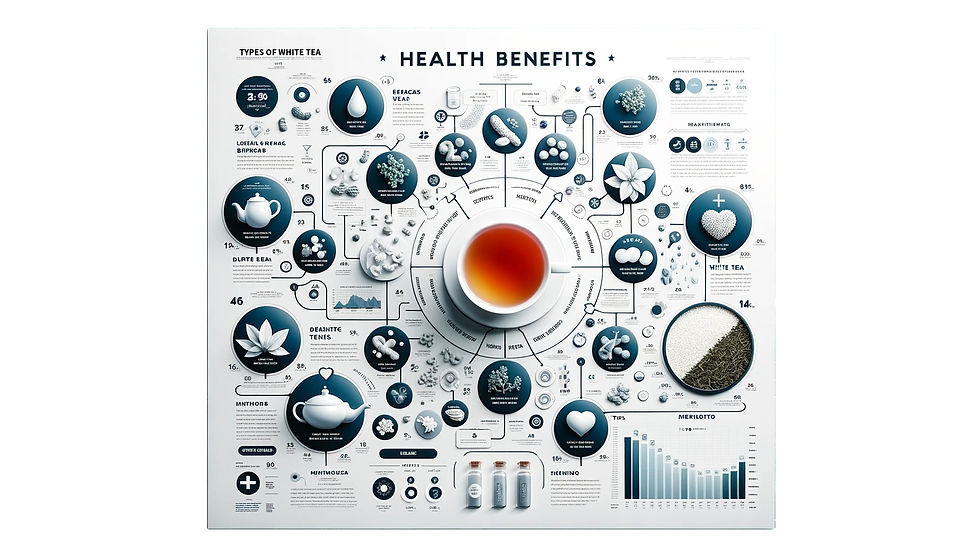
White tea, with its delicate flavors and minimal processing, isn't just a treat for the palate. Over the years, research has illuminated numerous health benefits associated with its regular consumption. Rich in antioxidants and possessing a unique chemical composition, white tea stands as a beacon of wellness in the vast world of teas. Here's a closer look at some of its remarkable health benefits:
Rich in Antioxidants:
One of the primary benefits of white tea lies in its high concentration of polyphenols, which are powerful antioxidants. These compounds help combat oxidative stress by neutralizing free radicals, potentially reducing the risk of chronic diseases and promoting overall health.
Supports Heart Health:
Regular consumption of white tea has been linked to improved heart health. Studies suggest that it may help lower bad LDL cholesterol, reduce blood pressure, and improve the overall health of blood vessels, thereby reducing the risk of cardiovascular diseases.
Promotes Skin Health:
The antioxidant properties of white tea can also benefit the skin. These antioxidants help protect the skin from damage due to oxidative stress, potentially reducing signs of aging, promoting a healthy complexion, and aiding in skin repair.
Supports Weight Management:
Certain compounds in white tea have been found to enhance metabolism and fat oxidation. This means that it might aid in weight management when combined with a balanced diet and regular exercise.
Oral Health:
White tea contains fluoride, catechins, and tannins. These compounds can help reduce the growth of bacteria in the mouth, potentially leading to better oral health and reduced risk of cavities and gum disease.
Bone Health:
Preliminary studies suggest that the antioxidants and bioactive compounds in white tea might have a positive impact on bone health, potentially aiding in bone density maintenance and reducing the risk of osteoporosis.
Reduced Risk of Insulin Resistance:
Compounds in white tea have been shown to improve the breakdown of sugars, making it beneficial in reducing the risk of insulin resistance, a precursor to type 2 diabetes.
Antibacterial & Antiviral Properties:
White tea has demonstrated potential antibacterial and antiviral activities, which means it could play a role in supporting immune health and protecting against certain infections.
In conclusion, the allure of white tea extends far beyond its delicate taste and aromatic infusion. The myriad of health benefits it offers underscores the profound interplay between nature's offerings and human well-being. From supporting cardiovascular health to potentially bolstering the skin's defense against aging, white tea emerges as a holistic beverage that caters to both the senses and the body.
Yet, it's pivotal to approach these benefits with a balanced perspective. While white tea is a potent source of antioxidants and other beneficial compounds, it's just one piece of the puzzle in the journey toward optimal health. True well-being is the culmination of various factors, including a diverse and balanced diet, regular physical activity, mental wellness practices, and more.
White tea, in this larger tapestry, can be a delightful and nourishing addition, but it should complement, not replace other healthful habits. Its benefits are best harnessed when it's integrated into a holistic lifestyle that prioritizes all aspects of health. As with any dietary or health-related choice, it's also wise to seek insights from health professionals, ensuring that one's choices are attuned to individual needs and circumstances.
So, as you brew your next cup of white tea, savor not just its flavor but also the ancient wisdom and modern science that converge in its leaves, celebrating a tradition of wellness that spans centuries.


Comments